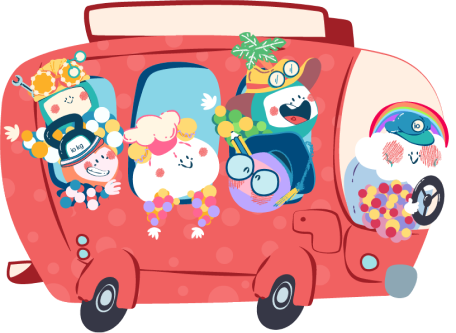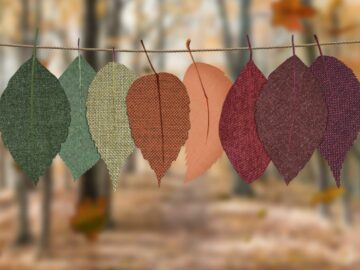Music is an important and effective tool for early childhood development. They provide plenty of sensory stimulation, improve moods, enhance coordination, and teach kids many new words.
This is especially true at preschool age when they are learning the necessary skills and discipline to become ready for a more formal primary school; music becomes an invaluable instrument that parents and teachers rely on.
Help your preschooler’s development by exposing him to these popular preschool songs.
Itsy Bitsy Spider
This nursery song is effective for infants and works quite well on preschoolers, mainly because of its catchy melody and interesting hand movements. The fact that the song talks about a spider also helps make this song very popular with children.
Wheels on the Bus
This song appeals to kids on so many levels. First, the bus is a fascinating vehicle to children because of its size and because it’s probably new to them (only having to attend school recently). Second, buses are associated with field trips, which are always fun. Third, kids just have a natural fondness for vehicles (especially larger ones like buses and trucks). Lastly, bus parts, actions, and body movements make a perfect mix of irresistible upbeat fun.
If You’re Happy and You Know It
This classic action song is another favorite in preschool. Teachers often choose this song because it provides children with a fun way of exercising. From simple movements like clapping to lower body movements like stomping, the song has a happy way of making your kids move around.
Head, Shoulders, Knees, and Toes
Don’t be surprised to hear this song regularly in many classes. Preschool teachers love using this song to help children learn some of the basic parts of the body. Not only does it come with actions, but it also has a catchy melody that you can speed up to make the song more exciting to follow.
Five Little Ducks
Preschool songs can also teach your children some basic math. This is exactly what the Five Little Ducks does. This song uses music to provide kids with basic counting practice and even subtly introduces the concept of subtraction.
The Ants Go Marching In
This is the perfect song for kids to sing when you have enough space in the room to move around. The song is packed with plenty of actions and a catchy cadence that is perfect for getting them on their feet.
The best part is that the song can be tweaked by changing the actions you want the children to do, making it a uniquely fun experience that the kids will always be looking forward to.
Where Is Thumbkin
If you’re looking for a song that can be sung while sitting down, then this is the perfect song for you.
Since it only requires the children to sing and move their hands, they can enjoy the song fully even without standing up (just like those times when they’re in the car or on the bus for a field trip). Not only does it teach the kids the name of each finger, but it also lets them improve finger dexterity.
ABC Song
A classic favorite, this song (also known as the Alphabet song) keeps children entertained and, more importantly, helps introduce them to the alphabet. It has the same melody as Twinkle Twinkle (both catchy and familiar), but the lyrics have been changed for learning the ABCs.
Old MacDonald had a Farm
This song scores very high in terms of fun. What else can you expect from a song that makes you imitate animal sounds?
Old MacDonald will always be a preschool favorite because it has the right blend of upbeat rhythm, exciting topics, and a healthy dose of silliness.
For generations, these classic preschool songs have been a favorite of many teachers and parents. They have been entertaining and teaching kids for a very long time. Your child will enjoy them too.
Frequently Asked Questions
How do songs help with children’s development?
Songs naturally appeal to kids because hearing is one of the first and most developed senses they acquire. They help in the development of your child by:
- Providing sensory stimulation
- Expanding their vocabulary by introducing words
- Promoting dexterity and coordination (with action songs)
- Instilling valuable life lessons (through songs that tell stories)
- Simplifying hard-to-understand (or new) concepts through repetition and catchy vibes
- Relieving stress and enhancing their mood
At what age can children start listening to nursery songs?
You can expose your child to nursery songs from when you bring them home or even earlier when they’re still inside their mother. The words might not mean much to them initially, but the melodies can affect them—brightening their mood or making them physically more active.
By the time they reach 3 or 4 years old, familiarity with the melodies might make it easier for them to pick up the words and understand the concepts.
How do you teach songs to preschoolers?
If you’re planning to teach a new song to your preschooler, you need to:
- Let them listen to the music over and over again.
- Play the music in the background (while they’re busy doing something else), so they pick up the melody faster, even when you’re not asking them to.
- Put actions (or body movements) for certain words or parts of the song (words are easier to recall when they are associated with movement)
- Practice, practice, practice!
- Gamify the son to make it even more interesting
Can music overstimulate preschoolers?
Yes. Playing songs nonstop for a long time, especially upbeat or too loud ones, can overstimulate children, just like adults. Make sure to give your preschoolers enough breaks, so they have time to process the various stimuli that the songs bring.
Which types of songs are best for preschoolers?
While some experts would argue that classical songs are still best (because of the range of frequencies they come with), many would prefer nursery songs because they teach many necessary skills needed for school.
Apart from providing an auditory feast for your children, nursery songs help children learn parts of the body, how to count, how to perform specific movements, and so much more.







